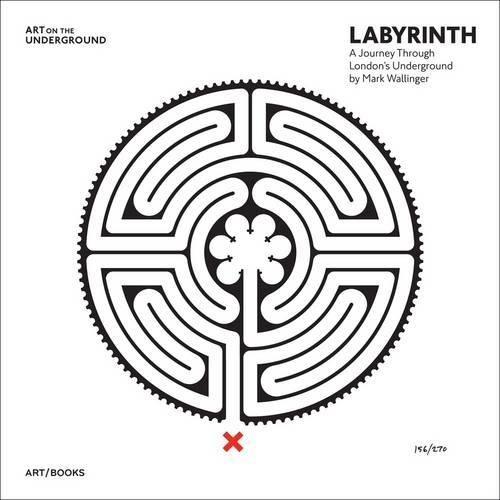
LABYRINTH: A Journey Through London's Underground by Mark Wallinger
(Hardback)
Publishing Details
LABYRINTH: A Journey Through London's Underground by Mark Wallinger
By (Author) Louise Coysh
By (author) Tamsin Dillon
By (author) Will Self
By (author) Mark Wallinger
By (author) Marina Warner
By (author) Christian Wolmar
Art / Books
Art / Books
1st November 2014
United Kingdom
Classifications
General
Non Fiction
Exhibition catalogues and specific collections
709.9421090512
Physical Properties
Hardback
320
Width 250mm, Height 250mm
2060g
Description
London's underground railways are an expression of the spread and diversity of the most international of capitals. Indeed, for many Londoners, the subterranean network is the very essence of the city, its arteries carrying the pulse of urban life from the heart of the metropolis out to its farthest extremities and beyond. How to capture that breadth in one work of art How to celebrate a single system while also reflecting the millions of lives that it transports every day That was the challenge facing Turner Prize-winning artist Mark Wallinger. His response was to create a vast, permanent work of public art across the entire network, layered with rich cultural and historical references. In each of the Underground's 270 stations, he placed a uniquely designed labyrinth, an ancient symbol representing spiritual and imaginative voyages akin to the countless circuitous journeys made on the Tube. Labyrinth: A Journey Through London's Underground by Mark Wallinger is a compelling record of this extraordinary project. But more than that, it is also a vivid celebration of the London Underground and of London itself. Striking photographs of all the labyrinths in situ reveal the diverse face and fabric of the network and its users, while fascinating facts about each station and their surrounds bring surprising perspectives to the daily commute. Transport historian Christian Wolmar tells the story of the emergence and development of London's subterranean rail network and the important role it has played in shaping the metropolis and those who live in it. Novelist Will Self responds to Wallinger's piece with a personal reflection that takes us into the depths of memory and through the disorientating effects of urban life; while writer and academic Marina Warner, in conversation with the artist, explores the historic and mythological significance of the labyrinth and places the project in the context of Wallinger's practice. Much more than a document of the creation of a work of art, this book is also a unique portrait of a system that keeps London going, the very lifeblood upon which it depends and thrives.
Author Bio
Will Self has written eleven novels and numerous shorter works of fiction. He regularly contributes to the Guardian, the New Statesman, the New York Times and the London Review of Books. His fiction has been awarded the Geoffrey Faber Memorial Prize and the Aga Khan Prize and shortlisted for the Man Booker Prize. Marina Warners study of the Arabian Nights, Stranger Magic (2011) won the Truman Capote Award for Literary Criticism and the Sheikh Zayed Book Award in 2013; in 2015 she was awarded the Holberg Prize in the Arts and Humanities and was made DBE. She is a Professor of English and Creative Writing at Birkbeck College, a Fellow of the British Academy and President of the Royal Society of Literature.
